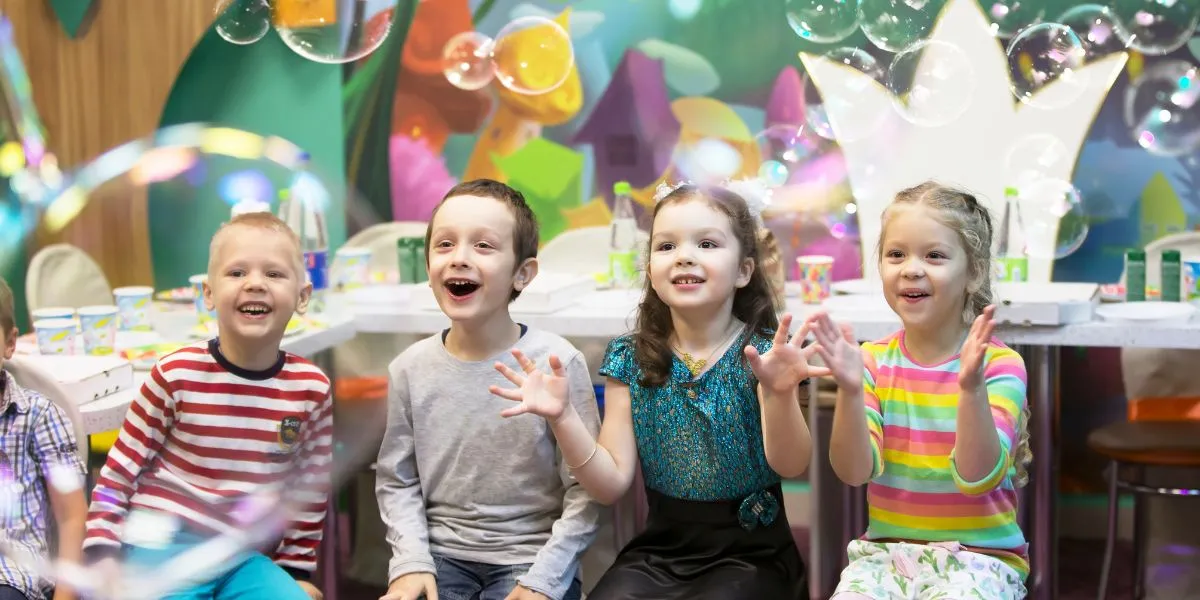
Published: 12/02/2024 - 1:00 PM
Acting on impulse can be normal behavior for young children. When left unchecked, though, acting impulsively can become problematic. Impulse control is a vital skill that helps with better decision-making, safety, communication, and emotional regulation. By teaching kids impulse control through fun games and activities, children can enjoy better mental and emotional health as you help boost their development and overall well-being.
Explore fun impulse control activities for kids, including the classic “Simon Says,” “Freeze Dance,” “Red Light, Green Light,” and other engaging games.
Understanding Impulse Control in Children
Self-control is part of a set of mental skills called executive function. Self-control involves different aspects. This generally includes impulse control for general reactions, emotional control that helps manage feelings and movement control for managing when and how the body moves. When children have good impulse control, they hone skills that help them learn how to do the following:
- Stop and think before they act
- Pause before reacting too quickly or aggressively
- Stay focused and resist distractions
- Stop themselves when they are doing something ineffective or wrong
- Wait for rewards
- Listen
- Follow rules and instructions
- Waiting their turn
- Avoid procrastinating
The Benefits of Impulse Control
Teaching children self-control helps them to be aware of and regulate their thoughts, emotions, and actions. Learning impulse control also provides these benefits for kids:
- Increases safety: One of the greatest benefits of teaching children impulse control is how it contributes to their safety. Taking the time to stop and think before acting can stop children from getting into dangerous situations. Self-control and the ability to reason also make children less likely to give in to peer pressure and engage in reckless and unhealthy behaviors.
- Improves social interactions: Learning self-control helps children become better communicators. It teaches them to listen and wait before replying or having their turn. Impulse control also teaches children to consider what they want to say before simply blurting out potentially unnecessary or harmful things. Taking time to pause and reflect in social situations can also teach children situational awareness and discernment.
- Boosts learning: Since a significant part of impulse control involves disciplining oneself to resist distractions, children with self-control can boost their listening skills and periods of focus. Both these skills can better equip a child for academic learning and retention.
- Solidifies a sense of identity: Children with good self-control are often more confident and independent. Through learning self-control, children are better able to express themselves and feel confident in their actions.

How to Teach Impulse Control
There are several ways you can teach children impulse control, including through games, reminders, routine and your own modeled behavior:
- Follow a routine: Having the security of a routine can help children better their impulse control. When you set a routine for kids, they have an expectation of what is to come. This can give them more patience and confidence regarding expectations. For example, knowing that lunch immediately follows activity time daily can give children the self-control to wait for their treats.
- Give clear and simple instructions with reminders: In most situations, sharing rules or instructions clearly and simply can set kids up for success. This is also true for helping their impulse control. Likewise, gentle reminders about the instructions or rules can help children stay focused and disciplined. Sometimes, simply interjecting with a reminder is all kids need to regulate their actions and emotions again.
- Use positive reinforcement: Children may also learn better impulse control when you offer them positive reinforcements like verbal affirmations or occasional little rewards. You can acknowledge a child's efforts by offering affirmations like “I love that you waited for your turn” or “Well done for being so patient.”
- Use games to teach self-control: One of the best ways children learn is through games and playing! Games like “Simon Says” can teach children listening skills, movement control and impulse control.

5 Impulse Control Activities for Kids
Playing games and doing activities with kids is an excellent way for them to hone their self-control skills. Impulse control games for kids can teach listening skills, patience, focus, and movement control. Try these five activities for impulse control and see how much fun the kids have:
1. Simon Says
Simon Says is a classic game that teaches children how to think before acting, listen and follow instructions. Simon Says is simple — if you give children instructions and they follow through, but only if you specify “Simon says” before the instruction. If you say, “Simon says touch your nose,” all the children should touch their noses. If you say “Touch your nose” without adding “Simon Says,” the kids should ignore the instruction. Anyone who gets the instructions mixed up is out until the next round!
2. Freeze Dance
Dancing is excellent for building up discipline, and freeze dance reinforces that by teaching movement control in the most fun way possible. To play Freeze Dance, you play upbeat music, and the kids dance until you abruptly stop the song. The moment you pause the music, all the kids should freeze and hold immediately and hold the position they are in until you play the music again. Anyone who doesn't freeze has to do 10 jumping jacks or 10 hops on one leg at the start of the next round.
3. The Bubbles Challenge
The Bubbles Challenge is one of the most fun impulse control activities for preschoolers. Since you will be blowing bubbles, this is a fun impulse control game to take outside, too. Tell the kids that you will blow a bunch of bubbles, but no one is allowed to pop any of them until you say the magic words. You can choose what the magic words are — “Now pop the bubbles” or “Go ahead!”. Popping bubbles is such a fun and natural response for young kids, so having to wait and listen before they pop them is a good way to learn self-control.
4. The Opposites Game
The Opposite Game is perfect for teaching children how to pause and process before they act. The rules are easy — you give the kids some simple instructions, and they do the opposite of what you say. If you say, “Sit down,” they should stand. If you say, “All talk very loudly,” they should all start whispering.
5. Red Light, Green Light
Red Light, Green Light is the perfect game for teaching impulse control while allowing the kids to run out of all their energy! All the kids line up on one side of a room or field. When you shout “Green light,” they all run to the opposite side of the room and back again. When you shout “Red light,” they all need to freeze immediately until you give the green light again. The fun part about this game is that you can add different color lights that each have their own meaning. For example, green is go, red is stop, orange is hop on the left foot, and yellow is hop on the right.
Engage in Fun and Educational Activities for Kids at Greater Philadelphia YMCA
Impulse control is an important skill that will serve children throughout their lives. At Greater Philadelphia YMCA, we offer various child care classes and programs that provide a safe and supportive environment for children to grow. Families can choose from the Y’s Early Learning, Before & After School Enrichment, Supplemental Kindergarten, and State Access Pre-K programs.
Our youth programs also include a variety of fun classes, such as dance, swimming, art, martial arts, and gymnastics. Get your children involved by signing up at your local branch today!